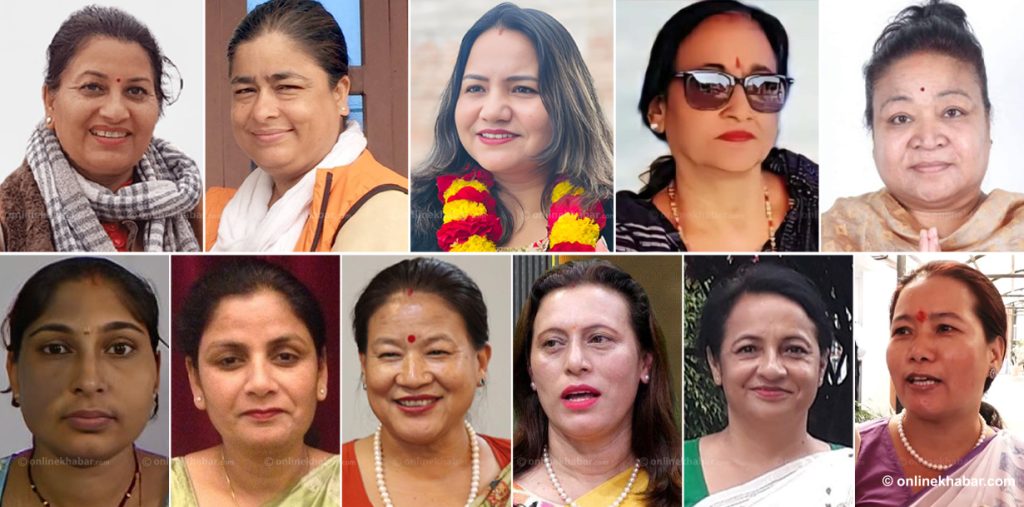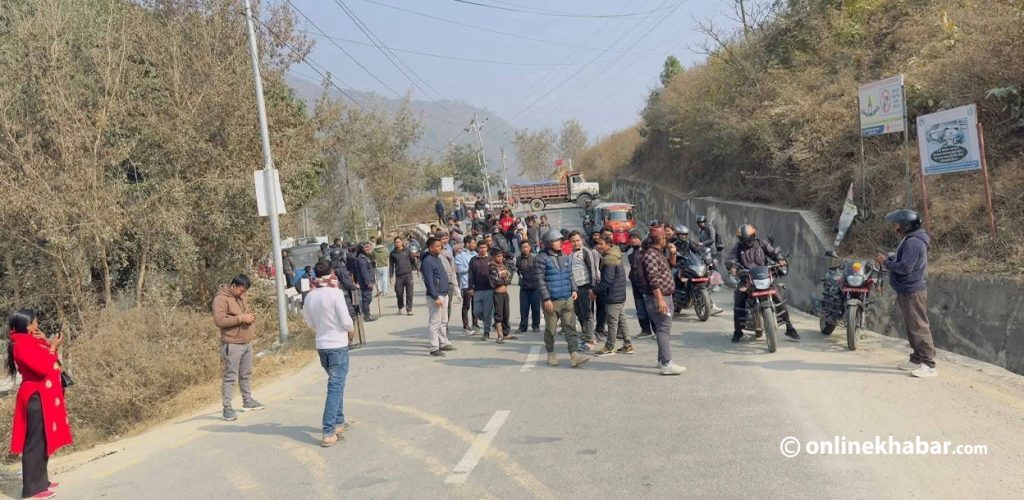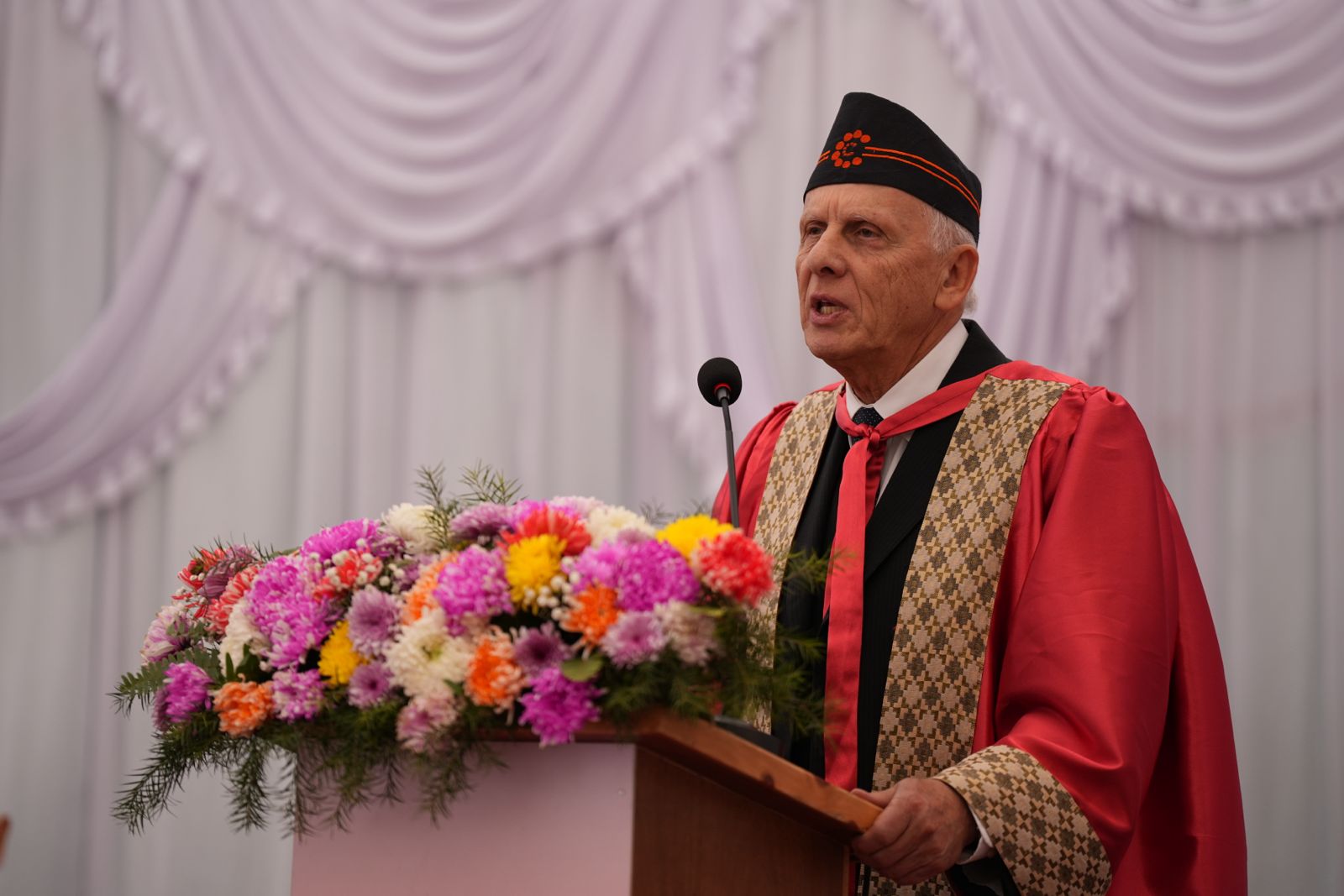
For the past six years, a nurse from Kavre has been working at Nepal Medical College, Jorpati and she is not happy with life; she sounds dissatisfied. The only reason behind it is her profession.
“We serve patients 24 hours a day but our hard work is never valued,” says the nurse, who did not wish to disclose her identity. “Seeing the labor exploitation in this profession makes me so angry that I feel like tearing my certificate apart.”
Labor exploitation, long working hours, and minimal facilities at private medical colleges have made nurses’ lives extremely difficult.
When she first joined Nepal Medical College, her salary was Rs 9,000. In six years, her minimum salary has only reached Rs 13,000.
Even now, newly appointed nurses start with a salary of just Rs 10,000.
She says that those who speak against the hospital’s exploitation are threatened with dismissal. According to her, when they raise issues about labor exploitation, they are instead threatened by their supervisors.
“No one working in the hospital is satisfied. But since there are no alternatives, we are forced to continue working,” she laments. “I spent a huge amount of money to become a nurse, but now I am mentally broken.”
Asmita Rijal (name changed) has been in the nursing profession for 14 years. She started her career working part-time at a private medical college.
Without a bachelor’s degree, her salary and responsibilities were limited. But even after completing her degree, her situation did not improve much. She is now employed at the National Kidney Center in Banasthali.
“Exploitation here is no different. The government’s minimum wage isn’t implemented,” Rijal says. “We have to work double shifts during festivals, there are no holidays. We can’t spend time with our families, yet our hard work isn’t appreciated.”
Rijal earns Rs 19,000 a month. For a nurse with 14 years of experience, this is a very low amount.
Private hospitals have not implemented the government’s basic salary standard for nurses.
“Forget about monitoring,” Rijal says. “Hospitals make their own rules and force us to work accordingly. We even have to spend extra hours learning on the job, but it’s never rewarded.”
Nurses carry a moral responsibility to serve patients, but this duty has made their personal and financial lives even more burdensome.
“We care for patients, but who cares about our suffering?” Rijal questions.
The lack of clear government standards for the nursing profession has made the problem even more complex.
The government has fixed a minimum wage, but it’s never monitored. There’s also no salary grading based on our education and experience, she adds.
This situation has forced many nurses to migrate abroad.
Many nurses leave Nepal seeking better pay and benefits. But Rijal wants to stay and do something in her own country.
“I have the skills, capability, and education, but the system here gives us no opportunity,” she says.
Sushila Sharma (name changed) has been working at Birat Medical College in Biratnagar for the past one and a half years.
“We joined this profession believing that service is a form of devotion, but what’s happening is labor exploitation,” she says
Nurses across Nepal are currently protesting against low wages and labor exploitation. Nurses at Birat Medical College have also begun demonstrations, demanding that their pay be according to the government’s fourth-level salary scale. According to Sharma, the basic salary there is only Rs 12,170.
“After getting a job, I still have to ask my family for money,” she says. “I studied thinking the medical field was good, but it is full of frustration.”
Nursing work is not limited to patient care, it is both physically and mentally exhausting.
“We work 12-hour shifts with only one day off per week, usually after two consecutive night shifts. That means we get just four days off in a month,” Sharma says.
Under such conditions, she has also started thinking about going abroad.
“I spent hundreds and thousands studying nursing, but in this situation, I don’t want to stay in Nepal anymore. I don’t see a future here so I’ve decided to go abroad,” she says.
After completing her PCL nursing course, Suraksha Sharma (name changed) searched for jobs at several hospitals.
To get a position at a private hospital, she had to work as a volunteer for months. Norvic Hospital in Kathmandu made her volunteer for six months and then hired her at a salary of Rs 11,000 per month. This experience left her disillusioned with the profession. She quit Norvic Hospital a year ago and is now unemployed.
“My room rent alone was more than Rs 7,000. I was left with just Rs 4,000. How can one work day and night for that?” she says. “The hospital administration didn’t increase my salary for years, so I quit.”
Many of Suraksha’s friends have gone abroad, and she is also preparing to leave.
Gita Parajuli, (name changed), a nurse at Vayodha Hospital, often gets asked how much she earns, a question that gives her mental stress and leaves her speechless.
“My friends assume nurses earn well, but I have to lie,” she says. “Now I feel like studying nursing was useless. My parents took loans to fund my education, and they still haven’t been able to repay them.”
Even after working 12-hour shifts daily, her salary is around Rs 13,000. Her middle-class family spent about Rs 1.5 million on her education, and she is still financially dependent on them.
“My salary only covers rent and food. If I need anything extra, I have to ask my parents,” she says. “They still haven’t paid the loan they took for my studies. I can’t sleep at night because of the stress.”
Nikita Kunwar (name changed) from Palpa has given up nursing altogether and now stays home. Having worked at various private hospitals, she went into depression because of workplace exploitation.
Unemployed for the past three years, she says, “When we raised issues of labor exploitation, senior nurses would scold us, saying, ‘If you don’t like it, leave.’ So I quit nursing and stayed home.”
She said that due to exploitation and mistreatment by medical colleges, she had to take antidepressants.
“I never thought the nursing profession would be like this. When you can’t even afford proper meals, how can you imagine a future?” she says.
Directives ignored, exploitation continues

Disillusionment with the nursing profession, considered the backbone of hospitals, is spreading fast. As a result, more nurses are leaving the country, and fewer are willing to stay and work in Nepal.
Nurses have long been protesting to solve these problems. They have repeatedly submitted petitions to the Ministry of Health and Population, demanding implementation of the minimum wage. But the issue remains unresolved.
On December 13, 2024, the Ministry made a secretary-level decision instructing all health institutions to pay nurses and health workers the same minimum salary as government employees.
The decision also stated that health and educational institutions must hire staff only through formal contracts, cannot employ nurses on daily wages, and cannot keep their original academic certificates.
However, private medical colleges ignored these directives. Even after repeated government instructions to ensure fair pay and facilities for nurses at private, community, and medical hospitals, no proper monitoring was done. Despite ongoing complaints from nurses about exploitation and low pay, the government has failed to take action.
A former chief of the Ministry’s Policy, Planning, and Monitoring Division said that concerned authorities have been repeatedly urged to facilitate implementation of these decisions however, the private institutions have never followed the government’s directives.
“Private hospital owners, with their political connections, have been running health institutions arbitrarily,” he says. “They’ve made the government kneel down several times. They continue to exploit nurses.”
Currently, nurses at Manipal, Gandaki, and Birat Medical Colleges, among others, are protesting, demanding that their pay match the government’s standard.
As per the December 13, 2024 decision, they are demanding a minimum salary of Rs 34,730 and government-level benefits for all nurses and health workers.
Following widespread protests, the government formed a 14-member committee on Sunday to address nurses’ demands, led by Additional Secretary Prof. Dr. Shree Krishna Shrestha.
On Sunday at 2 p.m., a meeting at the Health Ministry brought together representatives from the Nepal Medical and Dental College Association, Association of Private Health Institutions Nepal (AIFN), the protesting nurses, and government officials.
“Government orders are impractical”

Dr. Padma Bahadur Khadka, president of the AFIN claimed the government made its decision without proper discussion.
“The government issued a directive, but there’s no clear answer on whether it’s feasible to implement,” Dr. Khadka told Onlinekhabar. “Financially strong hospitals are paying well, but those that can’t afford to simply don’t.”
He further says, “The government provides salaries, buildings, land, and equipment for its hospitals. But private institutions invest their own money to run health services, and yet the government orders us to pay government-level salaries. We can’t operate at a loss.
According to Dr. Khadka, the private sector provides 75% of Nepal’s health services. Out of 35,000 hospital beds in the country, more than 25,000 are in private hospitals.
He warned the government to increase its capacity and employ the unemployed nurses itself if it insists on enforcing such standards.
“No government institution has filled all its sanctioned posts. There’s a shortage of human resources, and there is a lack of monitoring. Yet, private hospitals are monitored every year. The government should fulfill its own responsibilities first, its orders to the private sector are not practical,” Khadka said.





















